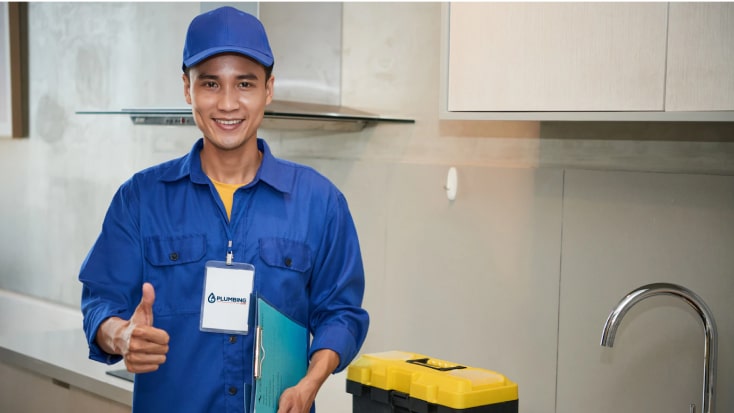Expert Plumber Shares Their Top Leak Detection Tips
It can be a hard pill to swallow when you are doing your best to conserve water and use the most water-wise appliances available, but the water bill keeps going up every month. If your water bill has been creeping upward despite your best efforts, your home may have a water leak.
Drips aren’t always obvious and don’t always leave telltale puddles lying around for you to step in. There are a lot of pipes hidden away beneath the floor and behind the walls, any one of which could spring a leak that you can’t see. Unfortunately, visible indicators can take their time in showing themselves, such as a strange stain on a ceiling or wall, or a suspicious mold outbreak.
High water bills because of leaks are not your only problem from leaky plumbing. Moisture from leaking pipes is often trapped with nowhere to go. It soaks into the building materials to support mold and mildew growth and eventually causes structural damage as the timber starts to rot and weaken.
If you suspect you have a leak in your home, dealing with it as soon as possible can save you a lot of money. These leak detection tips from your local leak detection specialist and plumbing service should help you locate the source.
Use Your Ears
Even tiny leaks can cause disturbances in your plumbing that your ears may be able to pick up. Check for strange groaning noises in your walls, which are made y pipes under abnormal pressure. Weird warm spots on your floor could also indicate a leak in the sub-flooring.
Keep an Eye on Your Property
Quite often, a visual cue is often the first sign of a leak. Unfortunately, when visual signs become obvious, the damage has been going on for some time. However, you can minimize the destruction by keeping an eye out for signs of leaks in your ceiling, basement, baseboard, and walls. If you can get to the leak while the visual signs are still small, your repair bill will be a lot less.
Develop a Nose for Leaks
Mold and mildew leave an unmistakable odor. If there is an area of your home with an unexplained musty smell, you should call mold remediation specialists immediately. They will find the source of your mold, repair the damage to the property, and seal up the leaks.
You Have A Sudden Influx of Pests
Pests need moisture to live, so a leak can make your property a much better proposition than your leak-free neighbors. When you notice more creepy crawlies than usual, it could be a sign that conditions in your basement have become more favorable.
Check Your Water Bill
Do you just pay your water bill without a second thought? Humans are creatures of habit, so water usage remains relatively stable from month to month unless relatives come to stay. Checking your water bill usage and comparing it to last month’s could be an excellent clue for detecting leaky plumbing.
Of course, tiny leaks will fit within the margin of error, but a large leak could create a significant spike in your water usage you can’t easily explain. Keep your water bills handy and regularly compare them from month to month, and you won’t get caught by surprise.
Check Your Water Meter
The water meter is one of our most efficient leak detection tips anyone can do. It’s easy to do and doesn’t take long, so it’s worthwhile doing this test every month.
Check the water meter and record the number. Turn off all the taps in your home and make sure the washing machine and dishwasher are not being used. Wait about an hour before checking the meter again. A meter that has moved even slightly indicates a leak.
Check Your Lawn
Do you have a patch of grass that’s weirdly greener and lusher than the rest of your lawn? It could be the result of a microclimate, but it could also mean that particular patch of grass is benefiting from the extra moisture delivered by a leaky underground supply line.
Check Inside Your Cabinets and Underneath your Appliances
When a water meter test reveals a leak inside your home, you should check the kitchen and bathroom cabinets for signs of moisture. Give the toilet and laundry a once-over as well. Check behind the toilet, beneath the water heater, and under the dishwasher and washing machine for signs of accumulated moisture.
Call a Professional Leak Detection Service Near You
While you can do a lot to detect leaks around your home. But if you do have a leak, a qualified plumber is your best bet to getting it repaired to a high standard. A leak is one thing that duct tape can’t fix, so always rely on the professionals. Stay vigilant and keep the above leak detection tips in mind when checking your property, and you will avoid an even more expensive repair bill.
